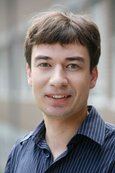The 2021 Federal Climate Change Act stipulates that Germany should become greenhouse gas neutral until 2045. The TREND:LR project analyses economic, social, and policy aspects of this transformation in rural areas.
Background and Objective
The intended transformation towards greenhouse gas neutrality influences living conditions and the economy in rural areas in various ways. The necessary interventions stand to affect real estate prices, settlement structures, infrastructure provision, income opportunities, and the cost of living. Businesses are confronted with the task of adapting to new technologies and retaining their competitiveness. Simultaneously, the transformation towards greenhouse gas neutrality can also present opportunities for new economic activities. Depending on existing spatial, social, and economic conditions, regions stand to adapt differently to upcoming changes and will henceforth require different forms of policy support. This also raises the question of how policy instruments can contribute towards achieving the climate goals.
The TREND:LR Project investigates the effects of the changes towards greenhouse neutrality in three sub-projects:
- Sub-project A focuses on the effects on living conditions
- Sub-project B analyses the effects on the economy
- Sub-project C researches the climate policy integration in local and regional development processes
Approach
Sub-project A begins with a literature review in order to identify key transformative processes and to estimate their effects on rural areas. On this basis, different future scenarios will be developed with the goal of assessing the influence of various policy approaches and the likelyhood of different development paths.
Sub-project B, we first systematise the factors and potential impact channels which are likely to be particularly relevant for the (regional) economic impacts of the transformation. Building on this, we will establish and investigate the sectors and regions where significant developments are to be expected.
Sub-project C first examines to what extend and under which conditions climate protection is involved in local and regional development processes. We focus on LEADER and village renewal. This will form the basis for new proposals to increase of climate policy integration in rural development.
Data and Methods
At their outset, all sub-projects evaluate the relevant scientific literature and political strategies. Following this, sub-project A will formulate different development paths by drawing on the scenario technique and the Delphi-method. This process will be complemented by expert workshops.
Sub-project B will analyse secondary data on economic structures, energy intensity, and interdependencies between regions and sectors. Statistical methods will be used to compare possible effects of the transition to greenhouse gas neutrality on the economy of different German regions.
Subproject C will conduct case studies on enabling and impeding factors concerning climate policy integration based on desk research and semi-structured interviews with local experts.
All subprojects will be concluded by validation workshops with researchers and practitioners.
Our Research Questions
- Which policy approaches are most spatially sustainable with regard to living conditions, which compensation measures may be necessary and how can relevant actors’ and citizens’ acceptance and willingness to cooperate be furthered?
- What are the effects on the economy? To what extent will economic changes affect all regions in a similar manner? Does the transformation to greenhouse gas neutrality have a spatially differentiated effect?
- To what extend and under which conditions is climate protection integrated in local and regional development processes?
Preliminary Results
We expect new insights into how the transformation to greenhouse gas neutrality affects living conditions and the economy in German rural areas - also in comparison to densely populated areas. We aim to identify the central factors which determine these effects. As part of a broader discussion on equivalent living conditions and social cohesion, the findings can sensitise political actors to issues concerning the effects of the transformation on rural areas.
On the other hand, the findings can be used to better focus existing funding instruments of integrated rural development towards the goal of a greenhouse gas-neutral Germany.
Thünen-Contact

Involved Thünen-Partners
Funding Body
-
Federal Ministry of Food und Agriculture (BMEL)
(national, öffentlich)
Duration
12.2022 - 12.2025
More Information
Project status:
ongoing

